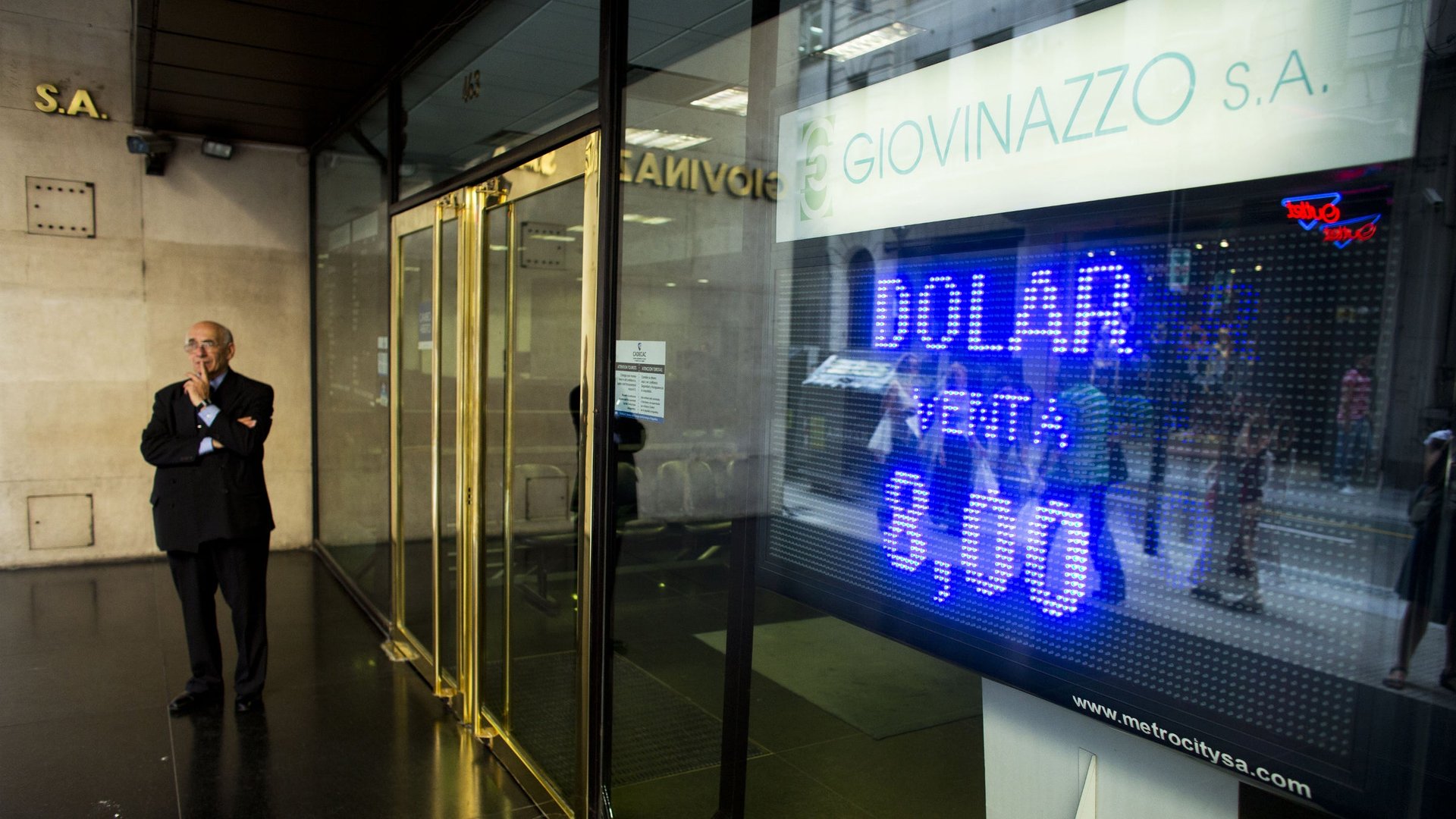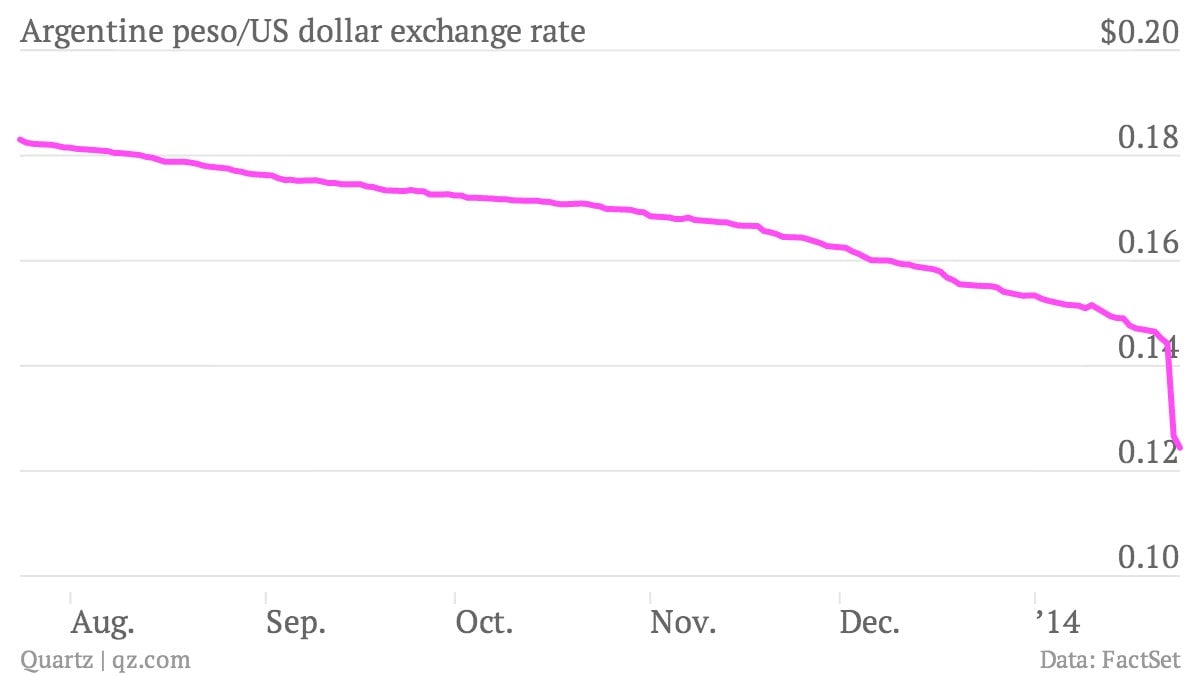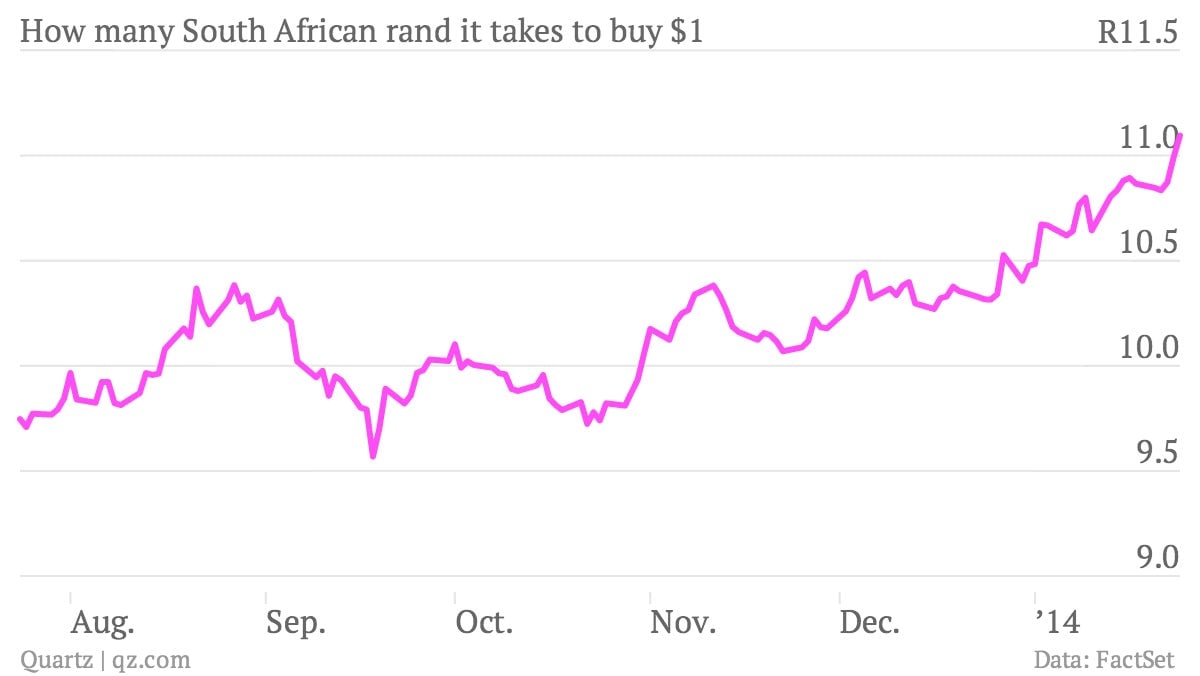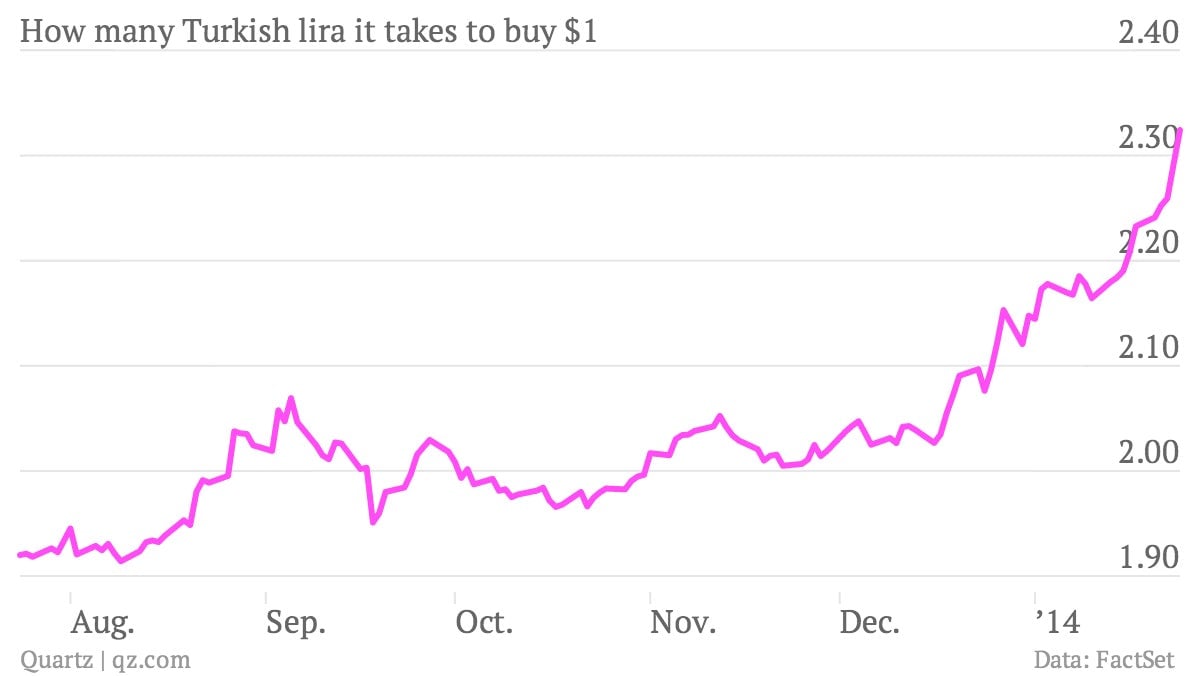It’s true, the Turkish lira is hurting your retirement today
It’s been a while since we’ve seen a good, old-fashioned retreat from risk. But that’s what we seem to be getting, thanks to a sharp emerging-market currency sell-off.


It’s been a while since we’ve seen a good, old-fashioned retreat from risk. But that’s what we seem to be getting, thanks to a sharp emerging-market currency sell-off.
The jitters started yesterday, when Argentina threw in the towel on trying to prop up its ailing peso. The currency dropped like a stone, falling by more than it had since the 2001 currency devaluation.

(And that’s just the official rate. The so-called blue dollar, or unofficial exchange rate, shows a tumble that’s far deeper.)
But this isn’t just an Argentinian peso story. Other emerging-market currencies also took some sharp, worrisome tumbles. For instance, an already weak South African rand slid hard, resulting in a sharp appreciation of the greenback. The rand punched through the R11 per dollar mark for the first time since October 2008.

The Turkish lira also fell, with market forces pushing it above 2.3 per dollar, even as the central bank tried to hold off the tide by intervening in the currency markets.

The big question is why? And the answer is: nobody knows, exactly.
Some people say the sell-off was spurred by weaker growth signals out of China. Some say the catalyst is expectation that the Fed will further reduce its bond buying when it meets next week. Others say an adjustment in some of these currencies is simply long overdue, with political risks looming in Turkey, ongoing capital control shenanigans in Argentina and South Africa’s large current-account deficits logically leading to weaker currencies.
But after nearly five years of smoldering financial crises in both the US and Europe, investors have been well trained to expect more shoes to drop.
That’s why we’re seeing a fairly sharp reaction in Spanish stocks, particularly in those with close ties to emerging-market countries. Spanish bank BBVA seems to be in the crosshairs on this one, as it has exposures to both Turkey and Argentina, a double whammy. (The shares suffered their steepest fall in 10 months.) Even US stocks—which have been on a seemingly relentless climb—slipped.
Is this the end of the world? No. In fact, markets have been far too complacent about emerging-market risks for a while now, and developed-market stocks couldn’t keep up the pace of appreciation over the last few months. A breather was definitely needed.